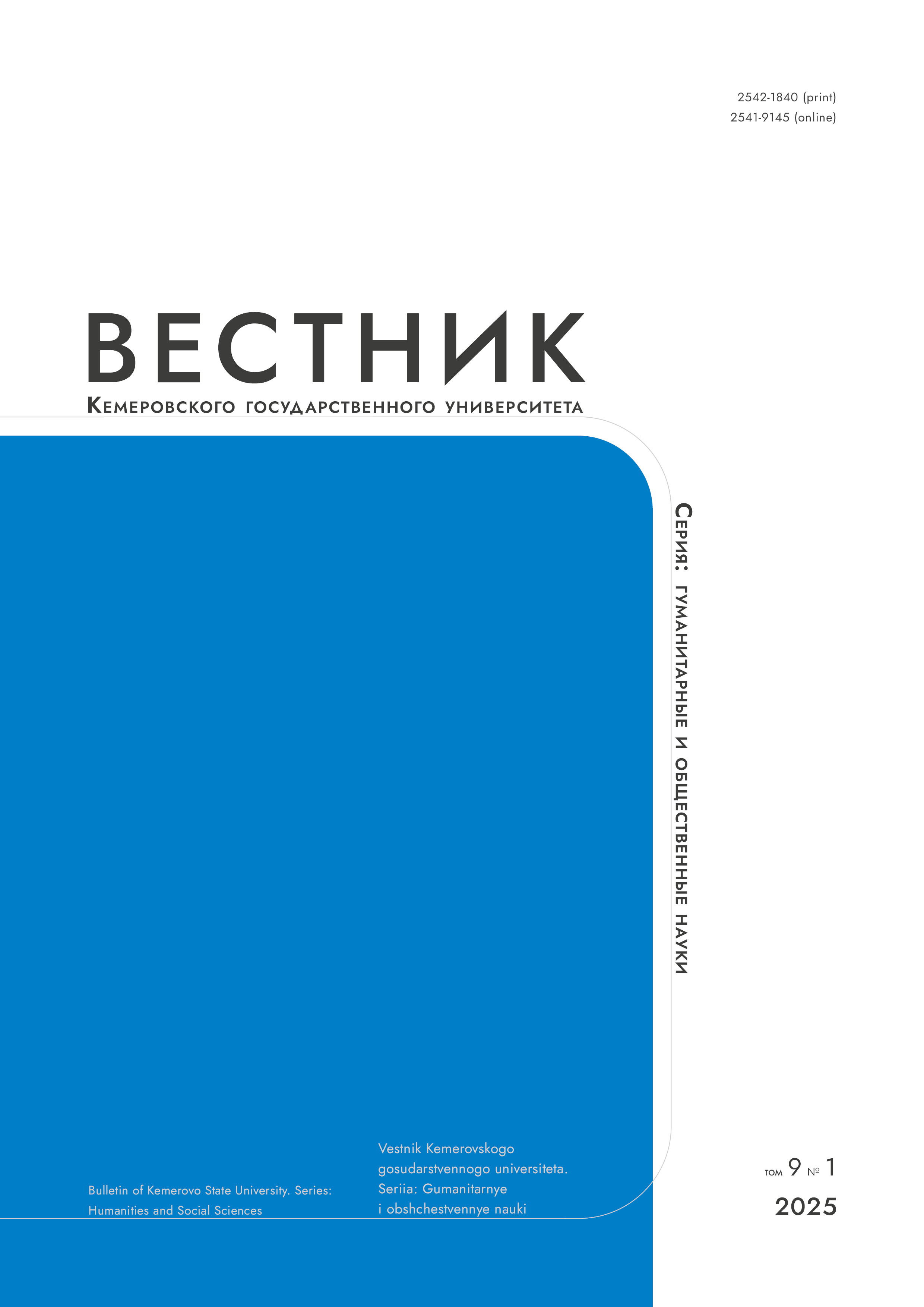from 01.01.2018 to 01.01.2019
Kemerovo, Russian Federation
Russian Federation
UDC 37
The research featured pedagogical conditions of formation of career choice readiness in high school students. The research objective was to identify, justify, and verify the effectiveness of the pedagogical conditions of formation of career choice readiness in senior pupils. The paper describes specifics of career choice formation and various approaches to the process. It also features structural components of readiness and introduces its authentic interpretation. The essential characteristics of career choice readiness in senior pupils include the ability to analyze alternatives and make decisions based on life experience. The authors propose innovative methods of teaching educational organization to senior pupils and formation of career choice readiness. In addition, the paper justifies involvement of students in the activities of school self-government.
components of readiness models, pedagogical conditions, innovative forms of education, educational organization methods, school self-government
1. Voityuk D. K. Psychological career choice readiness as a reflective act. Sibirskii uchitel, 2002, (5): 33-35. (In Russ.)
2. Gurskaya S. P. Characterization of the structural elements of choice. Bulletin of the South Ural State University. Ser. Psychology, 2012, (45): 4-11. (In Russ.)
3. Dvortsov V. B. Formation of readiness of cadets of the educational organizations of the FPS of Russia for providing the mode in penal institutions: results and results of an experiment. Vestnik Kuzbasskogo instituta, 2017, (3): 174-179. (In Russ.)
4. Yeremkin Yu. L., Pchelkina O. A. High school student as a subject of professional self-determination. Pedagogy and psychology as a resource of modern society: actual problems of the educational process in heterogeneous organizations: Proc. VIII Intern. Sci.-Prac. Conf., Ryazan, November 6-8, 2016. Ryazan, 2016, 358-361. (In Russ.)
5. Derkach A. A. The logic of the acmeological research. RUDN Journal of Psychology and Pedagogics, 2004, (2): 40-56. (In Russ.)
6. Amosova T. V. The main approaches to the professional readiness in the national psychology. The Emissia. Offline Letters, 2013, (8). Available at: http://www.emissia.org/offline/2013/2029.htm (accessed 10.08.2019). (In Russ.)
7. Nesterova O. S. Readiness for professional work as a starting point on the road to professionalism. Vestnik MGAU, 2014, (4): 58-61. (In Russ.)
8. Dyachenko M. I., Kandybovich L. A. Psychological problems of career choice readiness. Minsk: BGU, 1976. 176. (In Russ.)
9. Kapina O. A. A structure of psychological readiness to choose a profession. Iaroslavskii pedagogicheskii vestnik, 2011, 2(3): 205-207. (In Russ.)
10. Besklubnaya A. V. Senior schoolchildren professional self-determination today. Izvestiia Samarskogo nauchnogo tsentra Rossiiskoi akademii nauk, 2011, 13(2): 768-770. (In Russ.)
11. Khamizova I. Kh. Acmeological factors of the readiness of students and young specialists for successful professional activities. Cand. Psychol. Sci. Diss. Abstr. Kostroma, 2013, 24. (In Russ.)
12. Stolyarenko A. M. Professional and personal orientation in the modernization of the activity of the educational institutions of the Ministry of the Interior of Russia. Proceedings of Management Academy of the Ministry of the Interior of Russia, 2011, (2): 90-94. (In Russ.)
13. Kryukova T. B. Modern approaches to research of psychological readiness problem for activity in electric power engineering sphere. Vestnik IGEU, 2011, (1): 155-160. (In Russ.)
14. Morozova I. S., Kolomeets L. A. Concerning classification of choice making strategies of high school students. Theory and Practice of Social Development, 2013, (11): 112-114. (In Russ.)
15. Kucheryavenko I. A. The problem of psychological readiness for professional activities. Molodoi uchenyi, 2011, (12-2): 60-62. (In Russ.)
16. Semchuk I. V. The problem of readiness for professional activity at the training stage. Almanakh sovremennoi nauki i obrazovaniia, 2011, (11): 117-119. (In Russ.)
17. Zeer E. F., Symaniuk E. E. Competency-based approach to the modernization of vocational education. Higher education in Russia, 2005, (4): 23-30. (In Russ.)
18. Verbitskii A. A., Larionova O. G. Personal and competency-based approaches in education: problems of integration. Moscow: Logos, 2009, 336. (In Russ.)
19. Akimova M. K., Kozlova V. T. Accounting for the psychological characteristics of students in the learning process. Voprosy psikhologii, 1988, (6): 71-77. (In Russ.)
20. Gileva E. A., Egorov Y. S. The project method is an effective way to improve the quality of education. School, 2001, (2): 69-74. (In Russ.)
21. Popovich A. E. Pedagogical management of vocational orientation of school graduates. Srednee professionalnoe obrazovanie, 2010, (12): 46-49. (In Russ.)
22. Serebrovskaya N. Ye., Lukomets A. A. Psychological readiness to the choice of profession in early adolescence: theoretical and practical aspect. Vestnik Kostromskogo gosudarstvennogo universiteta. Seriya: Pedagogika. Psihologiya. Sociokinetika, 2017, 23(5): 44-48. (In Russ.)
23. Gubanova M. I. Pedagogical support of social self-determination of high school students: theory and practice of teacher training. Kemerovo: Izd-vo GOU "KRIRPO", 2002, 207. (In Russ.)
24. Bezrodnaya Y. A. Self-government and its role in managing the humanistic education system. Bulletin of the Russian Academy of Natural Sciences, 2006, 10(4): 70-72. (In Russ.)
25. Vasilyeva N. L., Ivanova V. Y., Skochilov R. V., Polyakova M. A. Psycho-social escort of personality development as a technology. Bulletin of the South Ural State University. Ser. Psychology, 2009, (30): 46-51. (In Russ.)
26. Popova V. I., Koroleva I. A. Organization of social and psychological support of pupils in the educational process. Vestnik Tomskogo gosudarstvennogo pedagogicheskogo universiteta, 2013, (6): 76-81.(In Russ.)


















